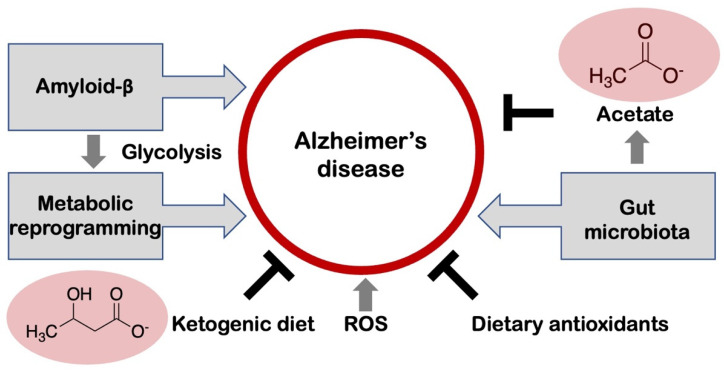Figure 2.
The multiple factors that may contribute to the pathogenesis and progression of Alzheimer’s disease. Alzheimer’s disease (AD) is characterized by the deposition of amyloid-β (Aβ) extracellularly in the brain. Aβ has shown induction of metabolic reprogramming from OXPHOS to aerobic glycolysis in microglia, which may drive AD pathology. Oxidative stress is an imbalance between the generation of reactive oxygen species (ROS) and the antioxidants and has been shown to contribute markedly to the pathogenesis and progression of AD. Gut microbiota-derived short-chain fatty acid, acetate, acts as a signaling metabolite that can enhance the maturation of microglia, maintain the homeostatic metabolic state, and regulate microglial phagocytosis and AD pathological progression during neurodegeneration. Nutraceuticals with antioxidant activity, such as dietary plant polyphenols may benefit the prevention of AD. The ketogenic diet yielding ketone bodies including β-hydroxybutyrate (the chemical structure is shown on the left of the figure) exhibited the potential for alleviating the symptoms of AD, suggesting the applicability of ketone-based nutritional therapeutics as a promising strategy for the complementation of the energy levels in the brain in patients with AD.

